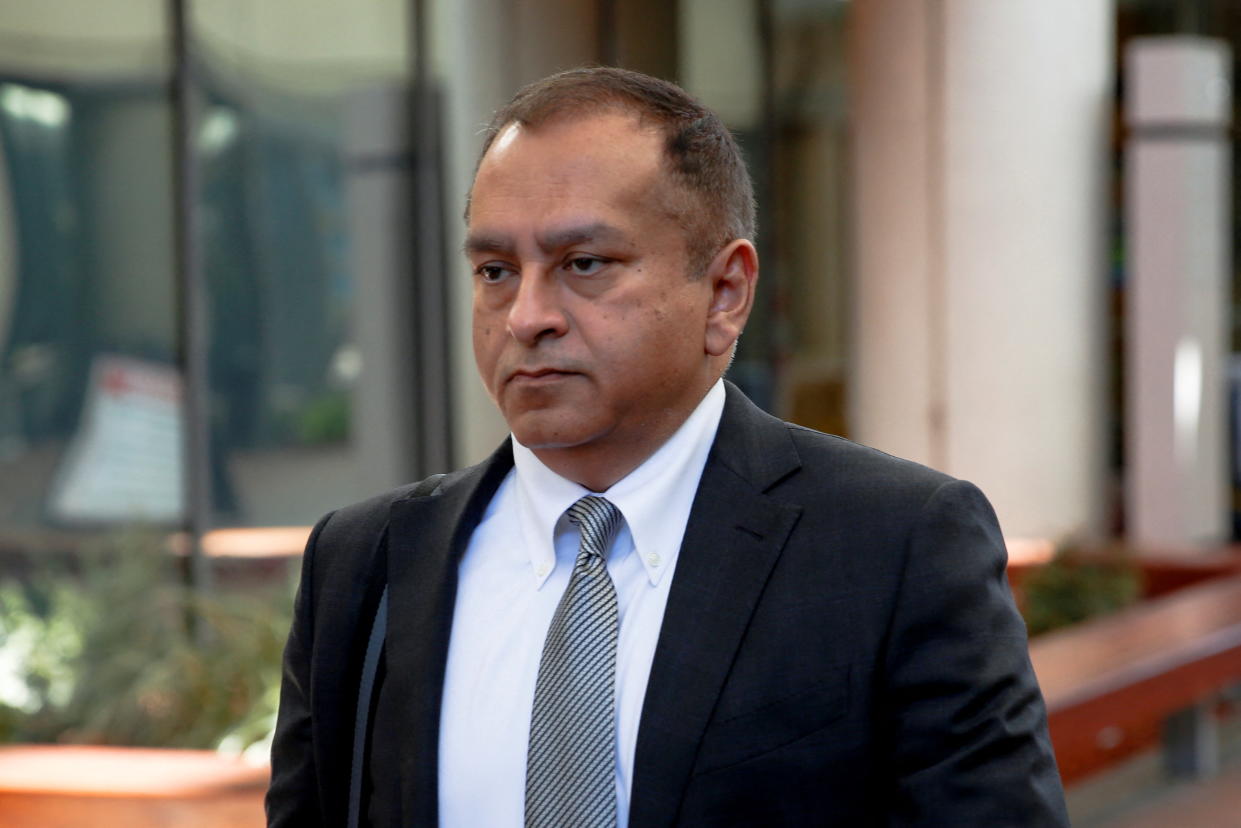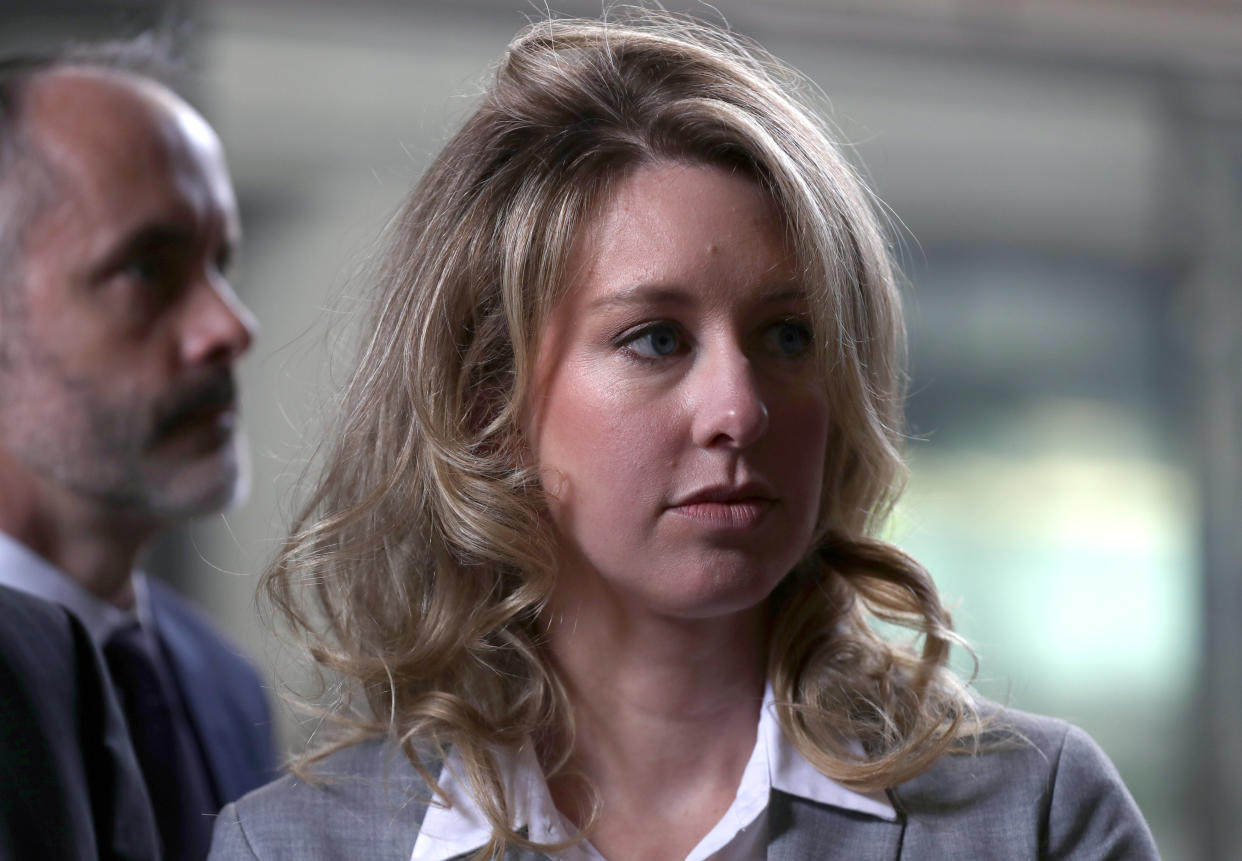The judge who presided over the criminal fraud trials of Theranos founder Elizabeth Holmes and her co-defendant and former boyfriend Ramesh “Sunny” Balwani sentenced Balwani on Wednesday to nearly 13 years in prison plus three years of probation.
"They misled investors, they misled patients," U.S. District Court Judge Edward Davila said during Balwani's sentencing hearing in San Jose, California, according to NBC News.
"I think it’s just that enduring question of why did such a promising company come to an end," Davila added, according to a tweet from Law360's Dorothy Atkins.
Balwani, 58, was sentenced to 155 months behind bars for a dozen wire fraud and conspiracy convictions tied to his role as chief operating officer in the collapsed blood-testing company. His convictions followed convictions against Holmes on four criminal fraud counts reached by a separate jury in January.
Davila based Balwani's sentence on a calculation that figured he defrauded 12 Theranos investors out of a collective $120 million, Law360 reported. Balwani's lawyers argued his sentence should be more lenient than Holmes' sentence because he was her subordinate, multiple news outlets said. Davila, however, challenged that contention, saying that Balwani was, at times, also a leader in the company.
Government prosecutors asked Davila to impose a 15-year sentence. Balwani's probation officer recommended a sentenced of nine years.
Following a three-month trial and deliberations over five days, a jury returned guilty verdicts on all 12 charges brought by the Justice Department — seven counts of wire fraud for defrauding Theranos investors, two counts of wire fraud for defrauding paying patients, two counts for conspiring to defraud investors and patients, and one count for wire fraud related to Theranos advertisements to patients in Arizona.
Balwani, who made millions as an executive during the dot-com boom and lost millions of dollars in investments in Theranos, started dating Holmes soon after she dropped out of Stanford University at the age of 19. His lawyers argued in court documents, as well as during the hearing, according to Law360's Atkins, that Balwani's sentence should not be enhanced for investor losses because he left the company before investors officially lost their money.
Balwani’s sentencing unfolded in the same San Jose, California courtroom where a jury reached its verdict in July, and where Holmes was convicted in January. Holmes, now 38, founded the now defunct startup in 2003 at just 19 years old, with a vision to overhaul diagnostic health care.
Balwani joined the blood-testing venture about six years later. For nearly a decade, he and Holmes sold investors on the idea of developing an analyzer, the size of a desktop printer, that purportedly could run a suite of common tests on as little as a drop or two of blood taken from a patient's finger. The duo raised nearly $1 billion from investors before the venture shuttered in the wake of a bombshell 2015 Wall Street Journal report revealing it was not, in fact, conducting the array of blood tests from a finger prick of blood, as Holmes promoted.
Prosecutors alleged that the pair used the company to defraud investors and patients who paid for unreliable Theranos tests. Following their joint indictment in 2018, their trials were severed when Holmes raised allegations of abuse against her former romantic partner.
While both faced nearly identical charges, Balwani’s jury returned a much harsher verdict. On 11 counts of fraud charged by the Justice Department against Holmes' her jury returned guilty verdicts on three counts of wire fraud and one count of conspiracy to commit wire fraud.
In November, Davila sentenced Holmes to 11 years and three months in prison, and ordered her to report to custody on April 27. In a motion filed on Monday, Holmes requested that Davila allow her to remain free pending an appeal of her case. Davila has not yet ruled on the request.
Holmes testified in her own defense, describing Balwani, 19 years her senior, as a physically and mentally abusive romantic partner whose controlling demands behind the scenes impacted her decisions.
Balwani’s counsel framed the former COO’s role at Theranos as distinct from Holmes. In arguments at trial his lawyers told the jury Balwani was a subordinate who joined five years after Holmes established the company. Prosecutors countered that characterization describing the defendant as Holmes' partner in crime.
Like Holmes, Balwani is expected to appeal his case to the 9th Circuit Court of Appeals. He has 14 days to file an appeal, after which he may also request to remain out of custody while his appeal is pending.
Alexis Keenan is a legal reporter for Yahoo Finance. Follow Alexis on Twitter @alexiskweed.
Follow Yahoo Finance on Twitter, Facebook, Instagram, Flipboard, SmartNews, LinkedIn, YouTube, and reddit.
Find live stock market quotes and the latest business and finance news
For tutorials and information on investing and trading stocks, check out Cashay
Source: Read Full Article

